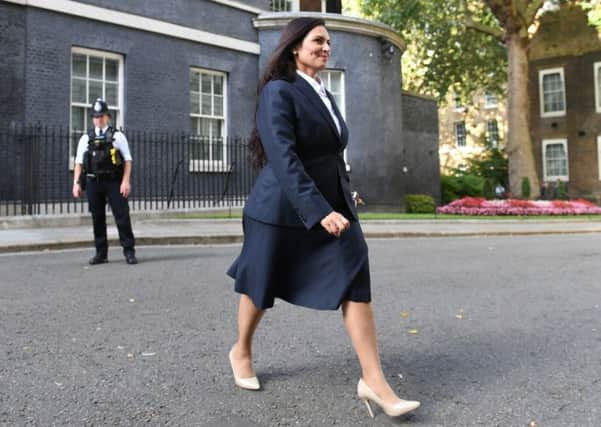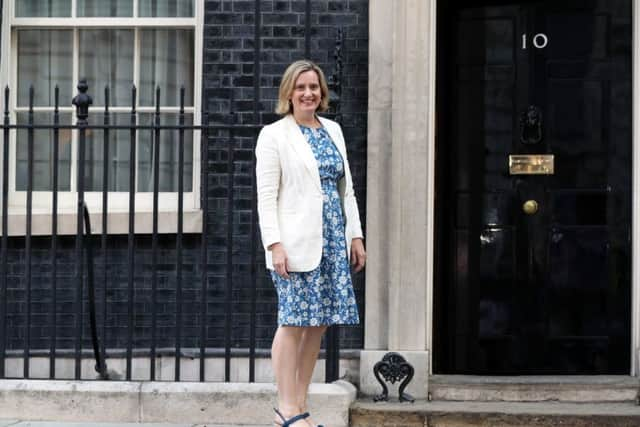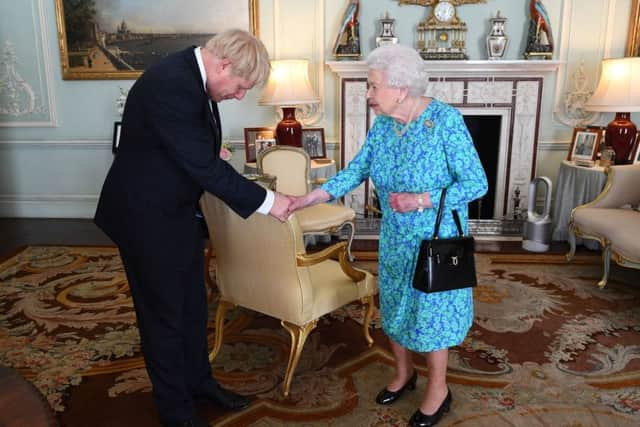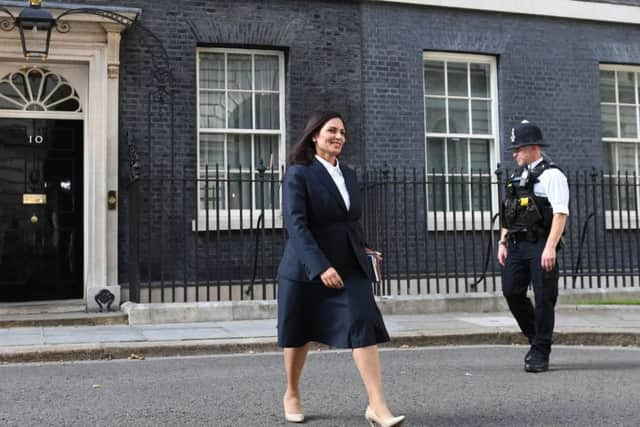Theresa May should get credit for progress of women in politics, not Boris Johnson - Jayne Dowle


I’m just not getting all the excitement. He’s managed to improve on David Cameron’s pitiful 2010 record of just four women in senior roles; Theresa May as the then Home Secretary, Caroline Spelman, Cheryl Gillan and Lady Warsi as Conservative party chair.
And? I’m the last person to support tokenism. I’ve always believed in promoting on talent and merit, regardless of gender. However, Johnson shouldn’t make a grandiose point and expect us to let it pass without proper scrutiny. As Prime Minister, he’s going to have to get used to this kind of thing.
Advertisement
Hide AdAdvertisement
Hide AdThe last time I looked – at the 2011 Census actually – the population of the UK was 63 million, of whom 31 million were male and 32 million female.


If it truly was a ‘Cabinet for modern Britain’, women should therefore make up at least half of its members. Yet just eight of the 33 positions available, including those who are not full Cabinet members, have gone to the distaff side. These include the appointment of Priti Patel as Home Secretary and Amber Rudd as Secretary of State for Work and Pensions (with, ironically Women and Equalities minister as an add-on).
You might think that running the massive government department that is the DWP, with all its attendant issues including serious supply chain problems with Universal Credit and unending controversy over disabled benefits, would be job enough for one person, without adding another responsibility to the brief. If there was a minister for ‘Men and Equalities’, do you imagine that it would sidelined thus?
Advertisement
Hide AdAdvertisement
Hide AdStill, I suppose we are expected to be grateful. Things have improved in recent years, thanks in no small part to Theresa May herself.


Whilst the spectre of her Brexit failures are still too raw for many to forget, Mrs May’s record on supporting, encouraging and protecting women in her own party and beyond cannot be refuted and should be her real legacy.
In government, she put domestic violence on the agenda and worked with the police and legislators to make ‘coercive control’ in a relationship a criminal offence. Those who scoff at her Brussels negotiating failures have clearly never had to prise information about this most shadowy of practices out of vulnerable women, nor presented evidence successfully to hard-nosed police chiefs and judges.
Tory women will also stand proud and tell you that it was her idea to launch Women2Win, a mentoring and pressure group that is widely credited with persuading women to consider politics and support them along the often treacherous path to selection and election victory.
Advertisement
Hide AdAdvertisement
Hide Ad

Cast your minds back. Somewhere around the time Mrs May did this, David Davis, once a frontrunner for the Tory Party leadership himself, was having his photograph taken with two female supporters in T-shirts bearing the legend: ‘It’s DD for me’.
And I had a conversation with a young woman studying for her sociology A-Level. This would be in 2005, I think, when just 17 out of 198 Conservative Party MPs were women.
On both sides of the House – despite the early flowering of (Tony) ‘Blair’s Babes’ his Cabinets had an average of just 21 per cent of female senior Ministers – the possibility of any kind of equality seemed ever further away.
Advertisement
Hide AdAdvertisement
Hide AdAnyway, this young woman used to babysit my two children whilst she studied. One day she asked to interview me for her coursework; she was doing some research on women’s equality and I was old enough to remember Margaret Thatcher becoming Prime Minister in 1979. As we talked, she admitted that there was no way she could imagine a woman ever becoming Prime Minister again. She had grown up with only vague recollections of Thatcher, followed by John Major and then Tony Blair.
She wasn’t the only one to think this. For all the advances made by senior female Labour ministers such as Margaret Beckett, who was Foreign Secretary from 2006 to 2007 and Harriet Harman, who spearheaded the pioneering Sure Start programme to support families, the very top job seemed ring-fenced and female politicians pigeonholed into supporting roles.
And then along came Theresa May. That she only ended up with the job because no-one else in her party proved worthy doesn’t take away from the fact that her appointment was a milestone.
Advertisement
Hide AdAdvertisement
Hide AdShe may have been the second female Prime Minister than no-one ever expected to see, but she won’t be the last. Who this might be is anyone’s guess right now. However, one thing is sure. The next woman to step into 10 Downing Street as Prime Minister certainly won’t be there because a man helped to put her there.